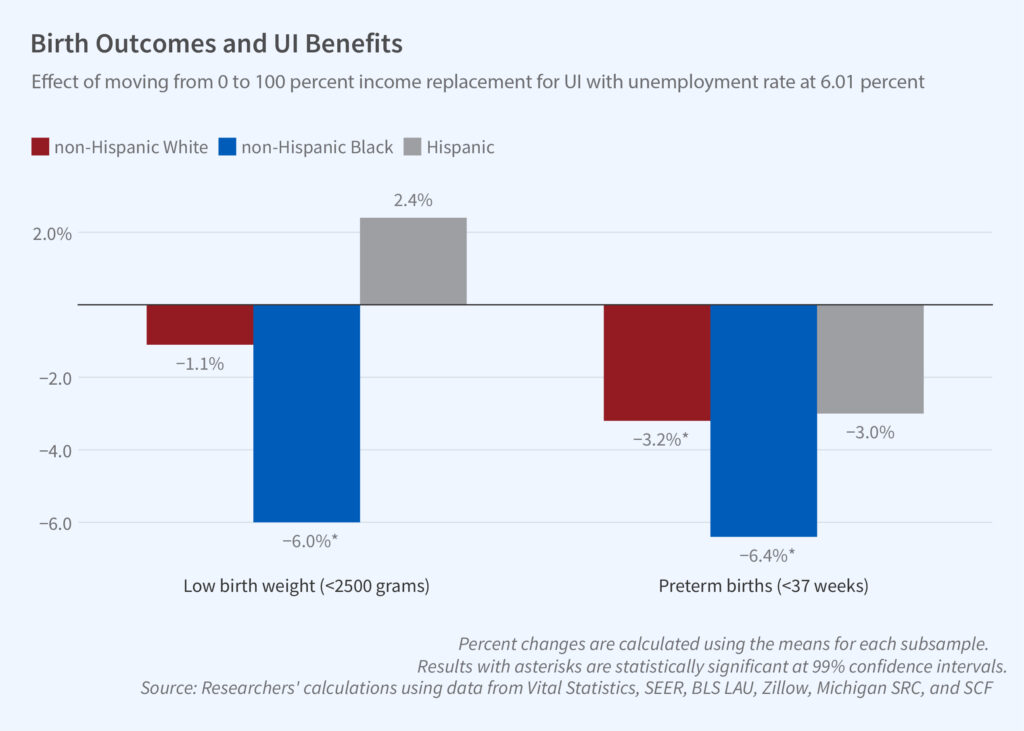An NBER paper by Dettling and Kearney (2023) finds that unemployment rate impacts both fertility rates and birth outcomes. Using data on birth outcomes from National Center for Health Statistics, data on local unemployment from BLS’s Local Area Unemployment Statistics, data on the share of families who are liquidity-constrained from the Survey of Consumer Finances.
Using these data, they find that each percentage point increase in the local unemployment reduces the fertility rate by ~1% driven largely by liquidity constraints. More generous unemployment insurance attenuates the fertility impact.
Each 10 percent increase in the UI replacement rate is associated with a reduction of about 0.5 percent in the negative impact of unemployment on fertility, so that when UI replaces 100 percent of lost income, there is no effect of unemployment rates on fertility rates.
The analysis finds that babies born during times of high unemployment are more likely to be born prematurely but also less likely to be born with a low birth weight. The latter outcome, however, is likely driven by selection bias (i.e., those who decide to have children during times of high unemployment are more likely to be relatively higher income). likely higher income
The authors then examine the potential impact of unemployment insurance on birth outcomes:
The analysis finds that more generous UI mitigates the negative effects of unemployment on infant health. Absent UI, each 1 percentage point increase in the unemployment rate would increase the proportion of low-birth-weight infants by 0.17 percentage points and the proportion of preterm births by 0.43 percentage points. A UI replacement rate of about 75 percent would fully offset these negative effects. On average, this would require replacing $383 per week, or $17,000 over a full-term 44-week pregnancy. The cost of birth hospitalization for a Medicaid-insured preterm infant is $42,000 higher than for a full-term infant, implying that the net social return to providing such UI benefits would be positive.
